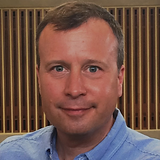About this course
This class will build upon introductory Applied Channel Theory classes and will provide an opportunity for students to further explore clinical strategies developed by Beijing professor Wang Juyi (王居易). Utilizing a combination of lectures and supervised point location refinement, this class is designed to improve clinical outcomes through a more sophisticated understanding of the functions (effects) and precise locations of major classical point categories.
When lecturing to students in his Beijing clinic, Dr. Wang Juyi would often break the study day into two component parts. Part one (usually in the mornings) would involve lectures on core concepts and the second part of the day would involve hands-on practice and instruction in clinical skills. In keeping with that training philosophy, most Applied Channel Theory courses involve an abundance of practical training in smaller group sessions. This course will alternate between lectures and careful point location practice of the five transport points (五輸穴 wǔ shū xué), the source points (原穴 yuán xúe) and the collateral points (絡穴 luò xué). In addition, students will engage in needle technique practice for some of the major points studied. Case discussions and common clinical applications will be presented in detail.




